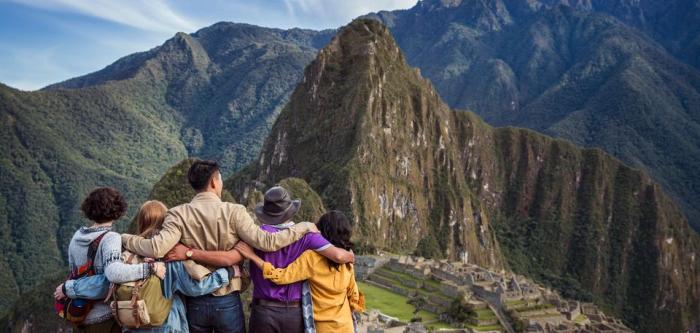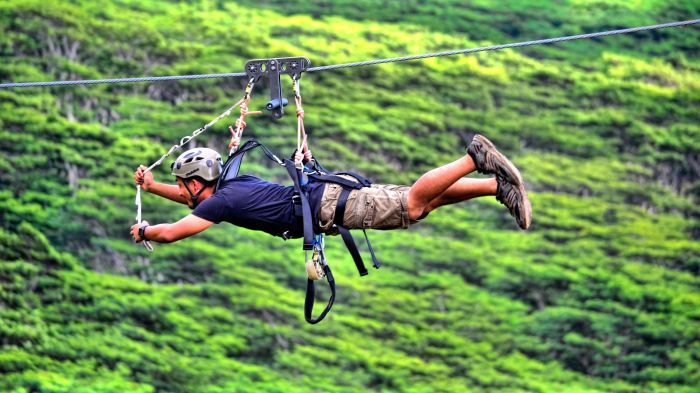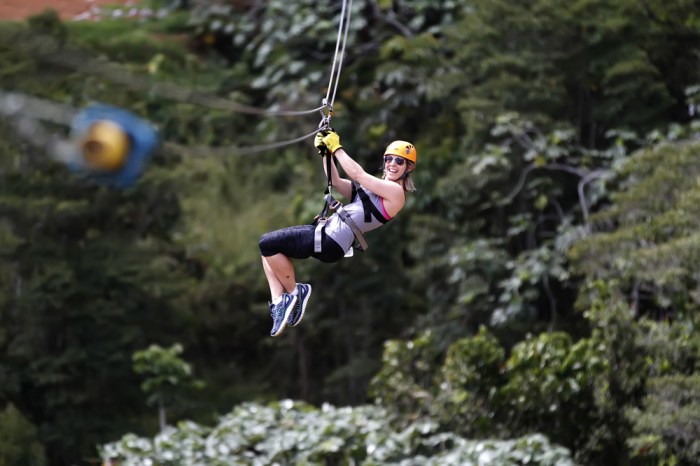Group Travel Tours Your Shared Adventures
Group travel tours offer a unique way to explore the world, sharing experiences and forging connections with like-minded individuals. Whether you’re seeking an adventure-packed journey, a cultural immersion, or an educational exploration, group travel tours cater to a wide range of interests. From meticulously planned itineraries to cost-effective pricing, these tours provide a framework for memorable trips.
This comprehensive guide delves into the intricacies of group travel tours, encompassing everything from defining different tour types and outlining the benefits to planning logistics, marketing strategies, and choosing ideal destinations. Understanding the unique challenges and considerations is key to a successful and fulfilling group travel experience.
Defining Group Travel Tours
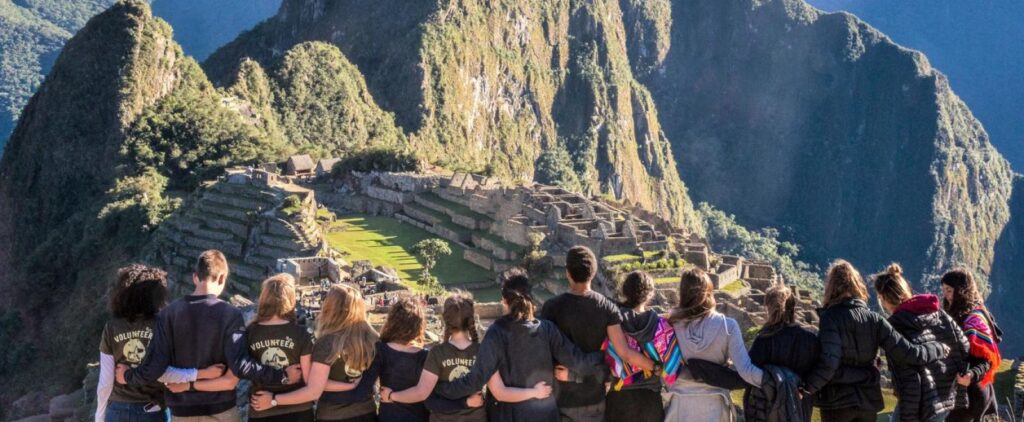
Group travel tours offer a structured and organized approach to exploring destinations, catering to diverse interests and budgets. They provide a unique blend of shared experiences and personalized attention, allowing travelers to immerse themselves in a destination while benefiting from the support of a group. This approach contrasts with the independence and flexibility of solo or individual travel.
Group travel tours are meticulously planned itineraries, designed to optimize time and resources, while ensuring safety and comfort. They are typically led by a knowledgeable tour guide who provides insights into the history, culture, and attractions of the visited locations. This expert guidance enriches the overall experience for participants.
Types of Group Travel Tours
Group travel tours are categorized by their focus and objectives, each type offering a unique experience. These diverse types cater to various interests, ranging from the thrill of adventure to the depth of cultural immersion.
Defining Characteristics of Group Travel Tours
Group travel tours differ significantly from independent travel in several key aspects. Firstly, group tours usually involve pre-arranged transportation, accommodation, and activities. This contrasts with the flexibility of individual travelers who arrange these elements independently. Secondly, group tours offer a sense of community and shared experiences with fellow travelers, whereas independent travel emphasizes individual exploration. Lastly, group tours typically include a tour guide who provides historical context and cultural insights, while independent travel often relies on self-guided research and exploration.
Examples of Group Travel Tour Itineraries
Several examples illustrate the diverse range of group travel tour itineraries. An adventure tour might involve hiking through scenic trails, camping under the stars, and rock climbing in a national park. A cultural tour could include visits to historical landmarks, museums, and local craft workshops, alongside opportunities to experience traditional cuisine. An educational tour, focused on specific subjects, might include lectures, visits to specialized institutions, and hands-on workshops.
Table of Group Travel Tour Types and Durations
| Tour Type | Duration | Typical Activities |
|---|---|---|
| Adventure Tour | 7-14 days | Hiking, camping, rock climbing, wildlife viewing, kayaking, and exploring nature trails. |
| Cultural Tour | 5-10 days | Visiting historical sites, museums, art galleries, and local markets. Learning about local customs, traditions, and cuisine. |
| Educational Tour | 7-14 days | Lectures, workshops, visits to universities, museums, and research centers, focusing on specific academic fields or subjects. |
Benefits of Group Travel Tours
Group travel tours offer a unique blend of social interaction, cultural immersion, and cost-effectiveness. These tours cater to diverse needs, from budget-conscious travelers seeking affordable adventures to groups looking to connect and share experiences. This approach to travel provides a framework for enriching individual and collective journeys.
Group travel tours present numerous advantages for both individuals and groups, fostering a supportive environment for exploration and shared experiences. The structured nature of these tours, coupled with shared resources and expertise, allows participants to maximize their time and immerse themselves fully in the destinations they visit.
Advantages for Individuals
Group travel fosters camaraderie and creates opportunities for meeting like-minded individuals. The shared experience of exploring new places strengthens bonds and builds lasting friendships. Moreover, the support of a group can ease the anxieties associated with solo travel, providing a sense of security and belonging. This can be particularly beneficial for first-time travelers or those who prefer company during their explorations.
Advantages for Groups
Group tours often offer exclusive access to destinations and activities not typically available to independent travelers. This can include pre-arranged tours, special discounts, and preferential treatment in popular tourist spots. Furthermore, the group dynamic allows for a variety of perspectives and interests, enriching the experience for everyone involved.
Social Benefits for Participants
Shared experiences, like meals, activities, and travel, foster strong social connections among group members. The proximity and shared goals of a group trip often result in a supportive and encouraging atmosphere, making the journey more enjoyable for all. This can lead to the development of lasting friendships and shared memories.
Economic Benefits for Participants
Group travel tours often offer substantial cost savings compared to individual travel. Shared accommodations, transportation, and activities typically result in lower per-person costs. This cost-effectiveness allows participants to experience more destinations and activities within their budget.
Economic Benefits for Local Communities
Group travel tours can contribute significantly to the local economies of the destinations visited. Spending on accommodations, meals, and activities directly supports local businesses and creates employment opportunities. This positive economic impact can benefit local communities and sustain the cultural heritage of the destinations.
Role of Group Travel in Fostering Intercultural Understanding
Group travel tours facilitate interactions with people from different backgrounds and cultures. Shared experiences and activities encourage empathy and understanding between travelers and locals. This interaction is instrumental in breaking down stereotypes and promoting tolerance and respect.
Cost-Effectiveness of Group Travel Tours
The cost-effectiveness of group travel tours is often a significant draw for many travelers. By pooling resources and coordinating activities, tour operators can offer competitive pricing compared to individual travel arrangements. This can include discounts on accommodations, transportation, and activities, resulting in lower per-person costs.
Comparison of Individual and Group Travel Costs
| Item | Individual Travel | Group Travel |
|---|---|---|
| Accommodation | Higher per-night cost, potentially needing to book in advance. | Lower per-night cost due to shared accommodations. |
| Transportation | Higher cost, potentially needing to book multiple modes. | Lower cost due to shared transportation options (buses, vans, etc.). |
| Activities | Higher cost for individual bookings and entrance fees. | Lower cost for group discounts and bundled activities. |
| Food | Higher cost for individual meals and restaurant expenses. | Lower cost for group meals or pre-arranged dining options. |
| Entrance Fees | Individual entrance fees to attractions. | Group discounts or combined tickets for attractions. |
| Total Cost (Example) | $1500-$2500 per person | $1000-$1800 per person |
Note: Costs are estimates and can vary based on destination, season, and group size.
Planning and Organizing Group Travel Tours

Source: com.au
Planning and organizing a successful group travel tour demands meticulous attention to detail and proactive management. A well-structured approach ensures a smooth and enjoyable experience for all participants, mitigating potential issues and maximizing the value of the trip. This involves careful consideration of diverse needs and preferences, effective communication, and a proactive problem-solving mindset.
Essential Steps in the Planning Process
The planning phase is crucial for a successful group tour. It involves defining the tour’s scope, budget, and target audience. This initial stage lays the foundation for all subsequent decisions. Understanding the needs and expectations of the group is paramount to ensure the tour aligns with their interests.
Logistics: Accommodation, Transportation, and Activities, Group travel tours
Efficiently managing logistics is vital for a seamless group travel experience. Clear communication and well-defined procedures are essential. This section details the process of securing appropriate accommodations, arranging transportation, and planning engaging activities that cater to the group’s interests and preferences.
- Accommodation: Selecting suitable accommodation options that align with the group’s budget and preferences is a key aspect. Factors like room types, amenities, location, and accessibility must be carefully considered. Prioritizing options with sufficient space, suitable for group needs and providing ease of access, is crucial. Negotiating group rates with hotels or resorts can be advantageous.
- Transportation: Ensuring convenient and safe transportation throughout the tour is essential. This may involve hiring a dedicated shuttle, utilizing public transport, or a combination of both. Detailed schedules and route information should be provided in advance. Consider factors like travel time, comfort, and accessibility needs. Potential delays and contingency plans for unexpected circumstances should be addressed.
- Activities: Creating a compelling itinerary with engaging activities that align with the group’s interests is vital. This may involve guided tours, cultural experiences, recreational activities, or a combination. Ensuring sufficient time for both structured and free time is important to accommodate varied preferences. Flexibility in the schedule should be built into allow for spontaneous explorations or adjustments based on group feedback.
Successful Group Tour Management Strategies
Implementing effective management strategies is crucial for smooth operations and to address potential conflicts or challenges. A clear communication channel and prompt response to concerns are key to maintaining a positive atmosphere. Prioritizing a collaborative approach and empowering participants can foster a sense of shared ownership and satisfaction.
- Communication: Establishing clear communication channels, including a dedicated communication platform (email list, WhatsApp group, etc.), is crucial. This ensures prompt updates, facilitates feedback collection, and allows for efficient resolution of any issues.
- Conflict Resolution: Developing a conflict resolution plan is essential. This should be the article’s procedures for handling disagreements or disputes fairly and efficiently. Having a designated point person to address concerns or a pre-established mediation process can be helpful.
- Flexibility: Anticipating potential issues and having contingency plans is critical. A flexible approach allows for adjustments to the itinerary or activities based on unforeseen circumstances, enabling a more adaptive and responsive approach.
Flowchart for Booking a Group Travel Tour
A well-defined flowchart simplifies the process of booking a group travel tour. It articulates the steps involved, ensuring a structured and organized approach. This helps to avoid delays and keeps the process transparent for all parties involved.
| Step | Description |
|---|---|
| 1 | Identify Needs & Goals: Define the group’s travel preferences, budget, and desired activities. |
| 2 | Research & Compare Options: Evaluate various travel packages, accommodations, and transportation options based on the identified needs. |
| 3 | Contact Providers: Reach out to potential tour operators, hotels, and transportation companies to obtain quotes and information. |
| 4 | Negotiate & Finalize: Negotiate group rates and finalize contracts with selected providers, confirming all details. |
| 5 | Manage Bookings: Secure accommodation, transportation, and activity bookings for the entire group. |
| 6 | Pre-Trip Communication: Provide necessary information to the group members, including itineraries, travel documents, and emergency contacts. |
| 7 | Post-Trip Evaluation: Gather feedback from the group to improve future tours. |
Marketing and Promoting Group Travel Tours
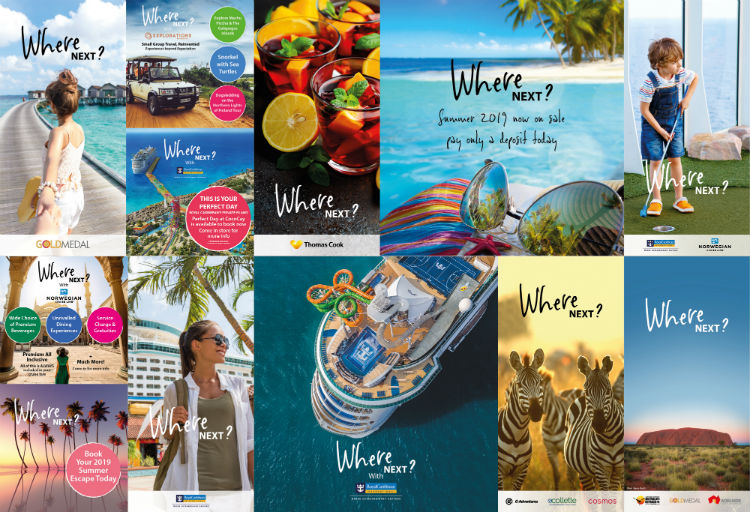
Attracting potential clients to group travel tours requires a strategic and multifaceted approach. Effective marketing strategies not only highlight the unique benefits of group travel but also resonate with the target audience’s desires and preferences. This section delves into key marketing strategies, channels, and promotional materials designed to boost bookings and ensure a thriving group travel business.
Effective marketing for group tours involves understanding the target audience’s needs and motivations. A tailored approach, combining various channels and compelling visuals, is essential for capturing their attention and converting them into satisfied clients. The focus should be on showcasing the value proposition of group travel, emphasizing camaraderie, shared experiences, and cost-effectiveness.
Effective Marketing Strategies
Understanding the target market and tailoring marketing strategies is paramount. A thorough market analysis reveals crucial insights into the preferences, interests, and needs of potential clients. This allows for targeted messaging and the development of campaigns that resonate with the desired demographic. Factors such as age, travel style, budget, and group size influence the marketing approach.
Marketing Channels and Platforms
Various channels and platforms offer diverse opportunities for reaching the target audience. Digital marketing plays a significant role, including search engine optimization for online visibility, social media marketing to engage with potential clients, and paid advertising campaigns to enhance reach. Traditional methods such as travel agents, partnerships with hotels and tour operators, and print advertising remain viable options.
Key Elements in Promotional Materials
Promotional materials for group travel tours should be compelling and informative. Clear and concise descriptions of the tour itinerary, highlighting key attractions, activities, and accommodation details, are crucial. Visual elements such as high-quality photographs and videos showcasing the destination’s beauty and the tour’s activities are vital. Pricing information, booking procedures, and contact details should be easily accessible. Emphasis on the benefits of group travel, such as shared experiences and cost savings, should be prominent.
Promotional Materials Examples
- Brochures: A well-designed brochure, featuring visually appealing images and detailed information about the tour, acts as a tangible representation of the tour’s offerings. The brochure should be easily portable and visually engaging, effectively conveying the key elements of the tour.
- Websites: A user-friendly website with high-quality images, detailed itineraries, and clear booking procedures is essential. The website should be mobile-responsive, ensuring a seamless experience across various devices. Online booking systems and customer reviews are crucial additions.
- Social Media Posts: Engaging social media posts featuring visually appealing content, such as videos showcasing highlights of the destination or testimonials from past clients, can generate significant interest. Interactive elements, such as polls and contests, can foster community engagement and boost visibility.
Marketing Strategy Effectiveness
A well-structured table showcasing different marketing strategies and their effectiveness is provided below. The table highlights the potential ROI and reach of each strategy, offering insights into their effectiveness.
| Marketing Strategy | Potential ROI | Reach | Effectiveness |
|---|---|---|---|
| Social Media Marketing | High | Broad | Engaging content and targeted advertising can generate significant interest and bookings. |
| Search Engine Optimization () | Medium to High | Targeted | Improved online visibility and organic traffic can lead to increased bookings. |
| Travel Agents Partnerships | High | Niche | Established relationships with travel agents can help access their existing client base. |
| Print Advertising | Low to Medium | Local | It can be effective in reaching a specific geographic area. |
| Email Marketing | Medium | Targeted | Can nurture leads and keep clients informed about new tours. |
Group Travel Tour Destinations
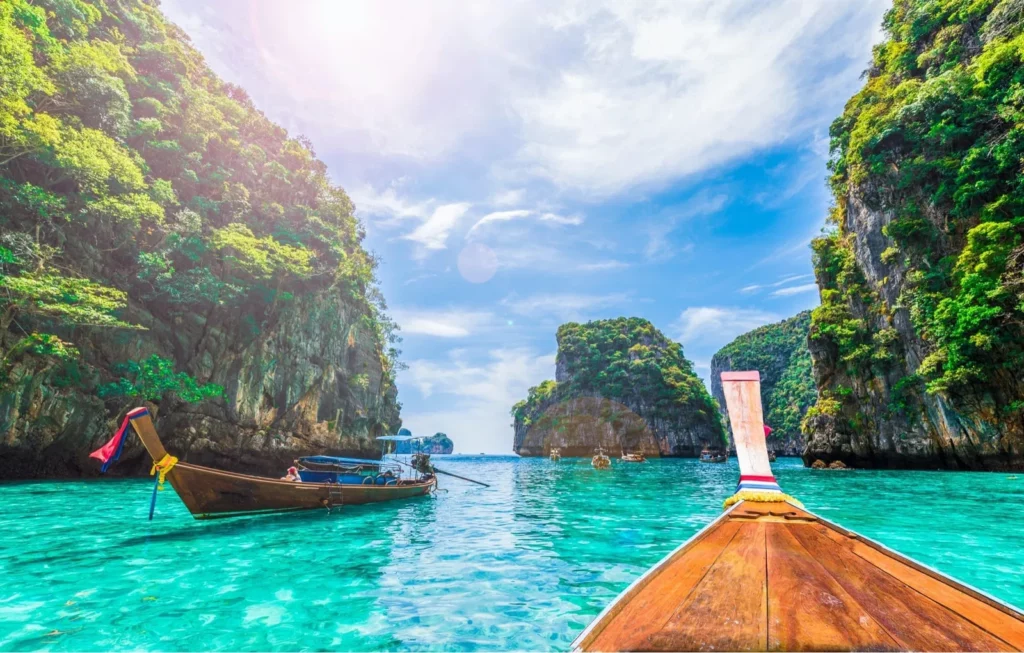
Group travel tours offer a unique opportunity for shared experiences and deeper cultural immersion. Choosing the right destination is crucial for maximizing enjoyment and ensuring a successful trip for all participants. Consideration must be given to the diverse interests within the group and the logistical aspects of accessibility and costs. This section explores popular destinations, highlighting their attractions and suitability for various group profiles.
Exploring diverse destinations offers enriching experiences for groups. From historical marvels to natural wonders, these locations provide opportunities for unforgettable journeys. Understanding the nuances of each destination allows for tailored itineraries, ensuring a satisfying trip for all participants.
Popular Destinations for Group Travel
A variety of destinations cater to diverse group interests, from historical sites to natural landscapes. Careful consideration of cultural sensitivities and accessibility is paramount.
- Europe: European cities like Paris, Rome, and London offer a blend of historical landmarks, cultural experiences, and culinary delights. Their accessibility, well-developed infrastructure, and diverse attractions make them popular choices for group tours. For instance, a historical group tour could include visits to iconic landmarks such as the Eiffel Tower, the Colosseum, and Buckingham Palace, while culinary tours could focus on local markets and restaurants.
- Southeast Asia: Countries like Thailand, Vietnam, and Cambodia boast stunning natural landscapes, vibrant cultures, and rich histories. These destinations often provide unique cultural experiences, from temple visits to jungle treks. Nature enthusiasts can enjoy trekking through lush jungles, while those interested in history can visit ancient temples and historical sites. The diverse range of activities and cultural experiences makes Southeast Asia an attractive destination for group tours, particularly for those seeking a blend of adventure and cultural immersion.
- South America: The Andes Mountains, Amazon rainforest, and historical cities like Machu Picchu and Cusco provide a variety of experiences. For example, a nature-focused group tour could explore the Amazon rainforest, while a historical tour could focus on the Inca civilization’s ruins. Accessibility and logistics can vary significantly across regions within South America.
Destination Characteristics
Understanding the specifics of each destination is key to planning successful group tours.
- Historical Sites: Destinations rich in history often include museums, ancient ruins, and historical landmarks. Examples include the Roman Forum in Rome, the Great Wall of China, and the pyramids of Egypt. These sites provide valuable insights into the past, sparking discussions and creating lasting memories for group members.
- Natural Attractions: Locations with natural beauty, like national parks, beaches, or mountain ranges, offer opportunities for outdoor activities and stunning scenery. These destinations appeal to groups interested in adventure, hiking, or relaxation. Examples include the Grand Canyon, Yosemite National Park, and the Galapagos Islands.
- Local Experiences: Experiencing local culture through interactions with locals, trying traditional food, or participating in cultural events adds depth and richness to the group tour. For example, visiting local markets, taking cooking classes, or attending cultural performances provides valuable insights into the destination’s unique character.
Group Tours Tailored to Interests
Tailoring group tours to specific interests ensures that all participants find the trip engaging.
- History Buffs: Tours focusing on historical sites, museums, and historical landmarks cater to this interest. Examples include a tour focusing on the Renaissance in Italy or a tour of historical sites in ancient Greece.
- Nature Enthusiasts: Group tours centered around national parks, wildlife viewing, and outdoor activities are well-suited to this interest. Examples include tours focusing on wildlife safaris in Africa or hiking in the Swiss Alps.
Destination Comparison Table
This table provides a concise comparison of destinations based on cost, accessibility, and activities.
| Destination | Cost (Estimated) | Accessibility | Activities |
|---|---|---|---|
| Paris, France | Mid-range | High | Historical sites, museums, and culinary experiences |
| Bangkok, Thailand | Budget-friendly | Moderate | Temples, markets, cultural experiences, and beaches |
| Machu Picchu, Peru | Mid-range | Moderate | Historical sites, trekking, hiking |
Group Travel Tour Experiences
Group travel tours offer a unique blend of shared experiences and personal growth, fostering lasting memories and enriching individual development. These journeys are more than just sightseeing; they cultivate a sense of community and provide opportunities for profound cultural immersion. Participants often find themselves forging connections with fellow travelers and creating memories that extend far beyond the tour’s duration.
Unique Experiences Offered
Group travel tours provide unparalleled opportunities for cultural immersion. Participants are exposed to diverse perspectives, traditions, and lifestyles, often in a way that independent travel might not allow. Immersive experiences can include interacting with local communities, participating in cultural performances, or attending workshops that offer deeper insights into the destination’s history and traditions. These shared experiences are powerful tools for understanding and appreciating different cultures. Community interaction is often a central element of group travel, encouraging participants to engage with locals in meaningful ways. This can include visits to local markets, interactions with artisans, or volunteering opportunities.
Fostering Personal Growth and Lasting Memories
Group travel tours are uniquely suited to foster personal growth. The shared experience of navigating unfamiliar environments, overcoming challenges, and celebrating successes together builds resilience and fosters a sense of camaraderie. These journeys provide a fertile ground for personal reflection, as individuals engage with new ideas, perspectives, and situations. Creating lasting memories is another key benefit. Shared laughter, overcoming obstacles as a team, and creating new friendships are crucial aspects of these journeys. The memories created during group travel tours are often more profound and evocative than those from independent travel.
Impact on Individual Development and Social Skills
Group travel tours significantly contribute to individual development. The need to collaborate with others, navigate differences, and adapt to new situations cultivates adaptability and problem-solving skills. Effective communication, empathy, and respect are crucial for successful group travel. The interactions with fellow travelers broaden perspectives, allowing for the development of social skills and an appreciation for diverse viewpoints. Participants often report improved communication skills, increased confidence, and a stronger sense of self-awareness after their group travel experiences.
Memorable Group Travel Experiences
Group travel experiences can encompass a wide range of memorable moments. A tour to a remote village in the Himalayas, where participants experience the local culture firsthand, can create lasting memories. A culinary journey through Italy, with cooking classes and wine tastings, can offer a profound immersion in the local cuisine and culture. A volunteer trip to a developing nation, where participants contribute to a meaningful cause, is a profound and enriching experience. These are just a few examples of the wide range of memorable group travel experiences available.
Creating a Sense of Community
A crucial aspect of successful group travel tours is the creation of a strong sense of community among participants. Shared experiences, activities, and challenges forge bonds and create a supportive environment. Effective communication and a welcoming atmosphere are vital elements for creating this community. Group activities, shared meals, and informal gatherings can contribute significantly to a feeling of belonging and shared purpose. These experiences create lasting connections that extend beyond the duration of the tour, providing participants with a supportive network of friends.
Challenges and Considerations in Group Travel
Organizing group travel tours presents unique challenges that extend beyond individual trips. Successfully managing a group requires careful planning and proactive strategies to address potential issues and ensure a positive experience for all participants. Careful consideration of diverse interests and potential conflicts is essential to maintain harmony and enjoyment throughout the journey.
Potential Challenges in Group Management
Effective group travel management necessitates a thorough understanding of the potential difficulties that can arise. Different personalities, varying travel styles, and unexpected circumstances can significantly impact the smooth execution of a tour. Addressing these challenges proactively can transform a potential problem into a manageable opportunity.
Effective Communication and Leadership
Clear and consistent communication is paramount in group travel. Leaders must maintain open channels of communication, fostering a sense of transparency and trust amongst participants. Prompt and clear communication about itinerary changes, emergencies, or any other significant development is crucial. Effective leadership also involves active listening and addressing concerns promptly and fairly.
Flexibility and Adaptability
Unexpected events, from flight delays to unforeseen medical issues, are inevitable. Travel planners must anticipate such contingencies and develop flexible plans that can accommodate these unforeseen circumstances. Adaptability is essential in responding to unexpected challenges with grace and efficiency, ensuring the group can continue the journey without undue stress or disruption.
Managing Diverse Interests and Expectations
Group travel inherently brings together individuals with diverse interests, preferences, and expectations. Understanding and respecting these differences is vital to maintaining a harmonious environment. Tour operators must strive to design itineraries that cater to the widest range of interests, offering optional activities and experiences to accommodate varying preferences.
Table of Potential Challenges and Solutions
| Potential Challenge | Possible Solution |
|---|---|
| Disagreements among group members regarding itinerary choices | Offer a range of optional activities and experiences to cater to varied interests. Establish clear communication channels to facilitate open discussion and compromise. |
| Unexpected delays or cancellations | Develop contingency plans that include alternative transportation options, accommodations, and activities. Maintain constant communication with all participants. |
| Varying physical abilities and needs among participants | Provide options for different activity levels. Ensure accessibility for all participants, including wheelchair access and assistance. |
| Conflicting schedules or preferences regarding meals and activities | Offer diverse meal options and flexible scheduling for activities, accommodating individual preferences where possible. |
| Language barriers | Provide translation services where necessary. Use visual aids and simple, clear communication to facilitate understanding. |
Last Recap
In conclusion, group travel tours provide a dynamic platform for shared adventures, fostering intercultural understanding and creating lasting memories. Careful planning, effective communication, and a focus on shared experiences are crucial to a successful group tour. Ultimately, these tours offer a rewarding alternative to individual travel, offering a balance of independence and community.

